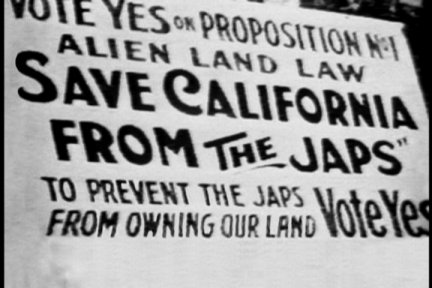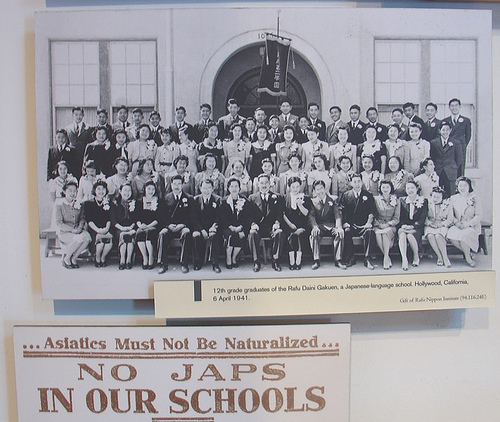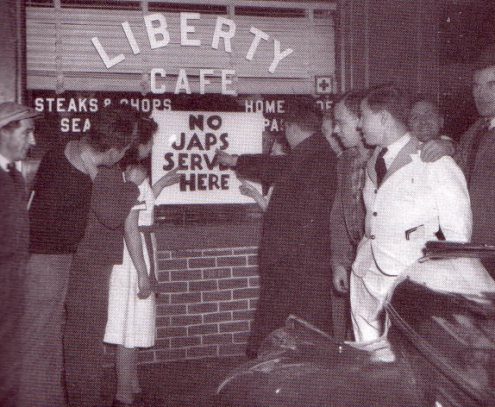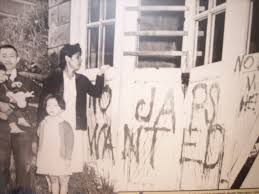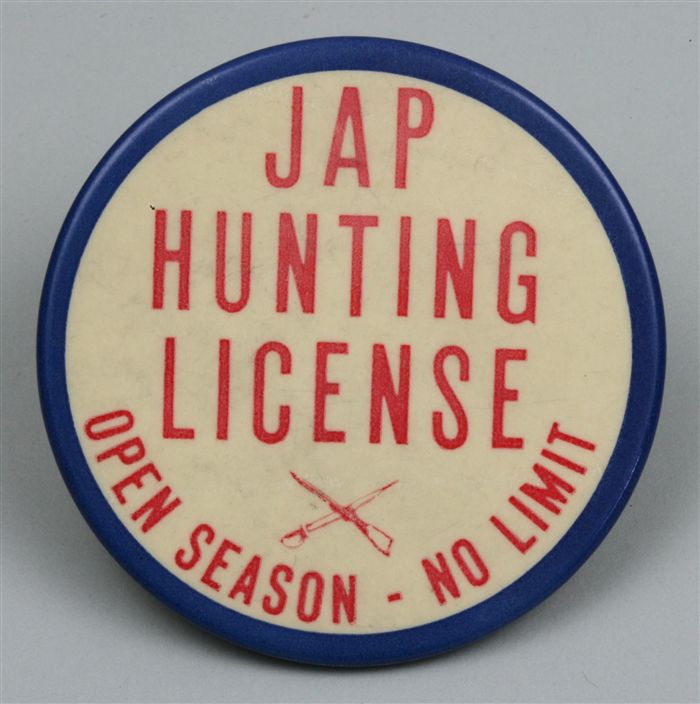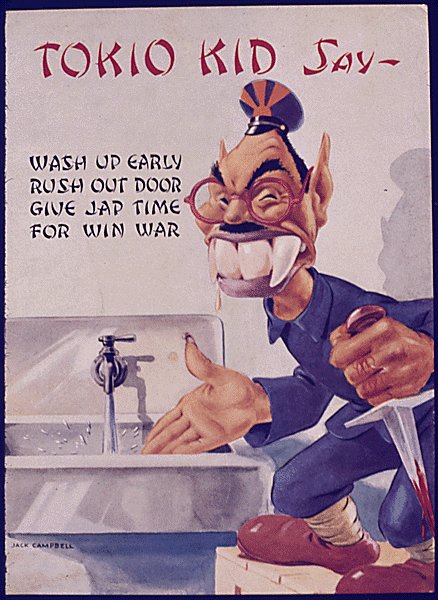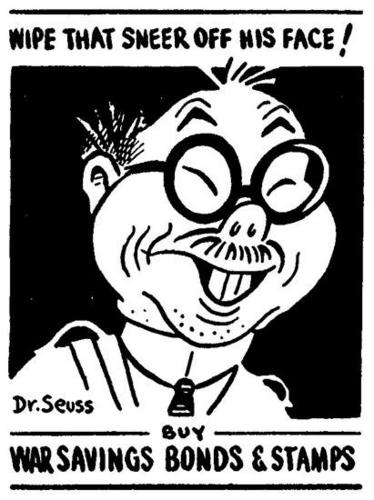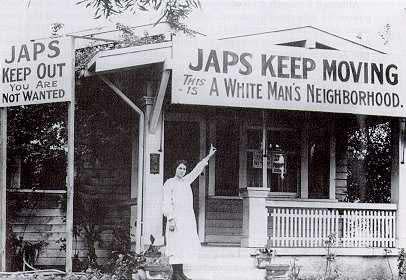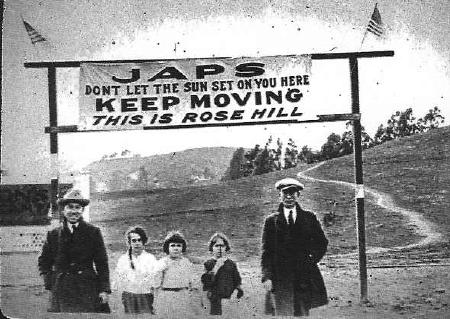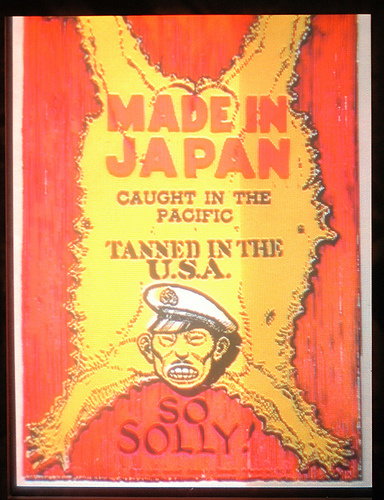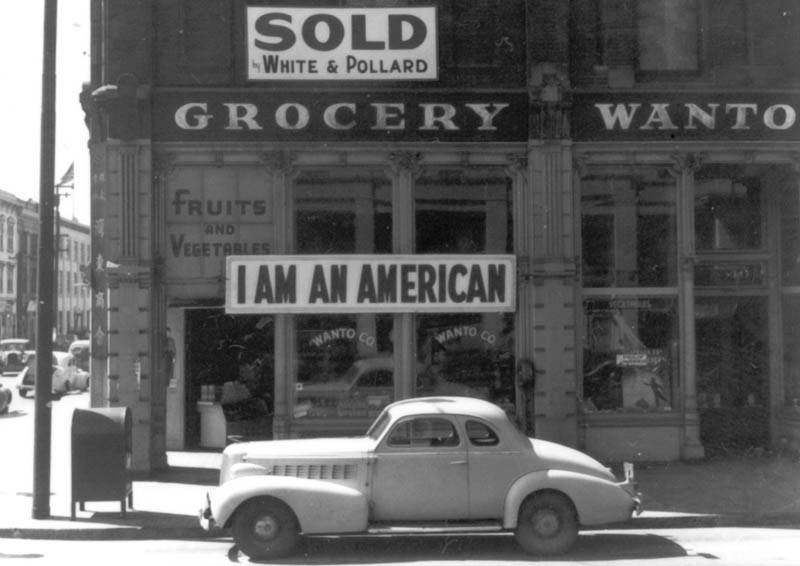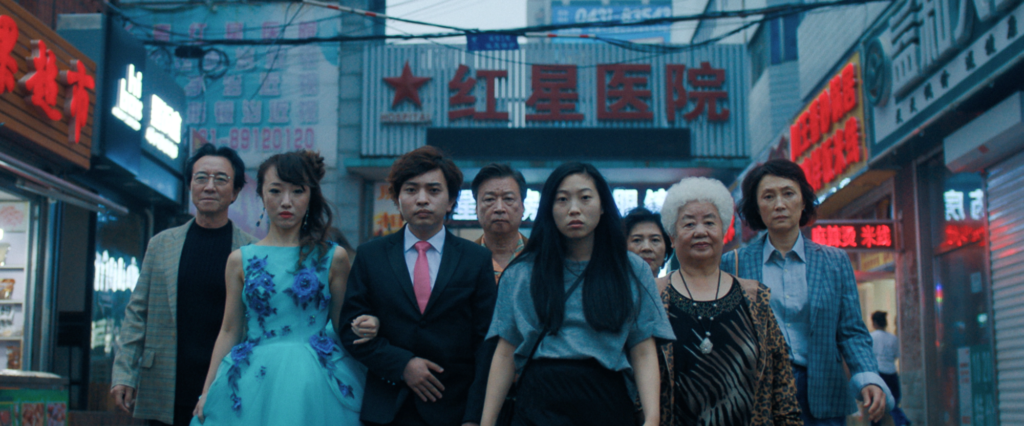72 years ago today, President Franklin D. Roosevelt signed Executive Order 9066, which established military zones in the West Coast, eventually empowering the government to round-up and forcibly intern Japanese Americans during World War II in one of this government’s worst examples of mass violation of American civil rights.
To remember this second day that should also live on in infamy (lest we forget the crimes and horrors that were conducted in the name of racism), here are 12 images that capture the anti-Japanese xenophobia and hatred of the era, that helped compel and support the signing of E.O. 9066.
1. An image from 1912-1913 in support of the California Alien Land Law that prohibits Asian migrants from owning property. It passed.
2. Detail of an exhibit at the Japanese American National Museum includes an editorial arguing against inclusion of Japanese American students. (source)
3. A store puts up a sign excluding Japanese customers. (source)
4. A family stands next a spray painted message. (source for image of house alone)
5. A novelty button.
6. Tokio Kid appears on one of many anti-Japanese propaganda posters of the era.
7. Dr Seuss illustrates the popular image of Japanese people for propaganda advertising US War Bonds (source).
8. Kent, a barber from Washington, opposes the return of Japanese Americans from internment camps. (source: Strangers From a Different Shore)
9. A woman points to a sign on a home. (source: Strangers From a Different Shore)
10. A family stands below a sign that helpfully explains the prevailing attitudes of Rose Hill.
11. An official US propaganda poster that advocates the murder and mutilation of Japanese troops.
Note: this is an updated version of this post with this image replaced. The original #11 was the same house as #4.
12. A sign erected in 1942 on a store owned by a Japanese American, uging his neighbours to see past the hate.
Later, the owner was interned and the store sold by the government to profit local (non-Japanese) business owners and residents. (source: AP/Dorothea Lange)
See more posts and retrospectives through Twitter using #DayofRemembrance. This is the first of three posts that I compiled for today.
Here is the full list of posts that I compiled today for this year’s #DayofRemembrance:
- Part One: 12 Images of anti-Japanese xenophobia
- Part Two: 10 images of Japanese American internment
- Part Three: 12 Images of Japanese American strength & patriotism

